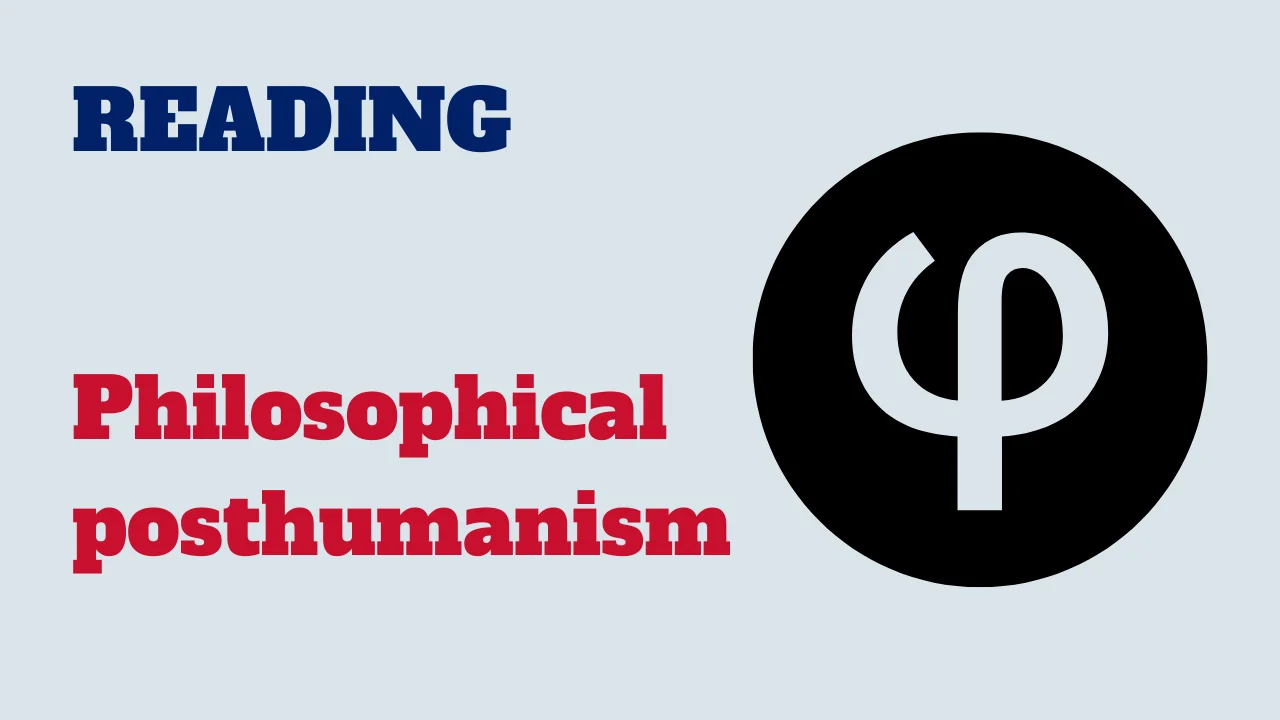Welcome to a thought-provoking exploration of the concept of philosophical posthumanism. In this reading activity, we will discover the diverse perspectives and agendas within philosophical posthumanism, examining its origins, key ideas, and implications.

Through this journey, we aim to deepen our understanding of how posthumanism challenges traditional humanistic ideals and offers new ways of conceptualizing humanity’s relationship with the world.
Text: Philosophical posthumanism
Philosophical posthumanism is an intellectual movement that explores the implications of transcending traditional human limitations through technology and redefines the boundaries of what it means to be human. It challenges the anthropocentric view that places humans at the center of the universe and proposes a more inclusive understanding of existence that encompasses non-human entities, artificial intelligence, and ecological systems.
At its core, philosophical posthumanism questions the fixed nature of human identity and capabilities. It suggests that advancements in biotechnology, cybernetics, and artificial intelligence have the potential to significantly enhance human abilities, leading to a future where humans evolve beyond their current biological constraints. This includes the possibility of augmenting physical and cognitive functions, extending lifespans, and even merging with machines.
One of the central tenets of posthumanism is the critique of humanism, which traditionally emphasizes human reason, autonomy, and individualism. Posthumanism argues that these concepts are limited and do not adequately address the interconnectedness of all forms of life and technology. By decentering the human, posthumanism advocates for a more holistic and integrated approach to understanding existence, one that recognizes the agency of non-human actors and the symbiotic relationships between humans, technology, and the environment.
Philosophical posthumanism also engages with ethical and existential questions. It prompts reconsideration of moral values and rights in a world where the distinction between human and machine blurs. Issues such as the ethical treatment of artificial intelligence, the implications of genetic modification, and the responsibility towards the environment are central to posthumanist discourse.
Prominent thinkers in the field, such as Rosi Braidotti and Donna Haraway, emphasize the importance of embracing diversity and complexity in shaping the future. Haraway’s concept of the “cyborg” illustrates a hybrid entity that transcends traditional binaries, challenging the boundaries between human and machine, natural and artificial.
In conclusion, philosophical posthumanism offers a transformative perspective on the future of humanity, advocating for an inclusive and interconnected worldview. It urges us to rethink our relationship with technology, the environment, and other forms of life, ultimately seeking to create a more equitable and sustainable future.
Comprehension questions
Congratulations on completing this exploration of philosophical posthumanism! Through this activity, we’ve gained insight into the diverse perspectives within posthumanist discourse and how they challenge traditional humanistic ideals. By critically engaging with these ideas, we expand our understanding of humanity’s relationship with the world and open new avenues for philosophical inquiry. Keep exploring and questioning as you continue your intellectual journey!



